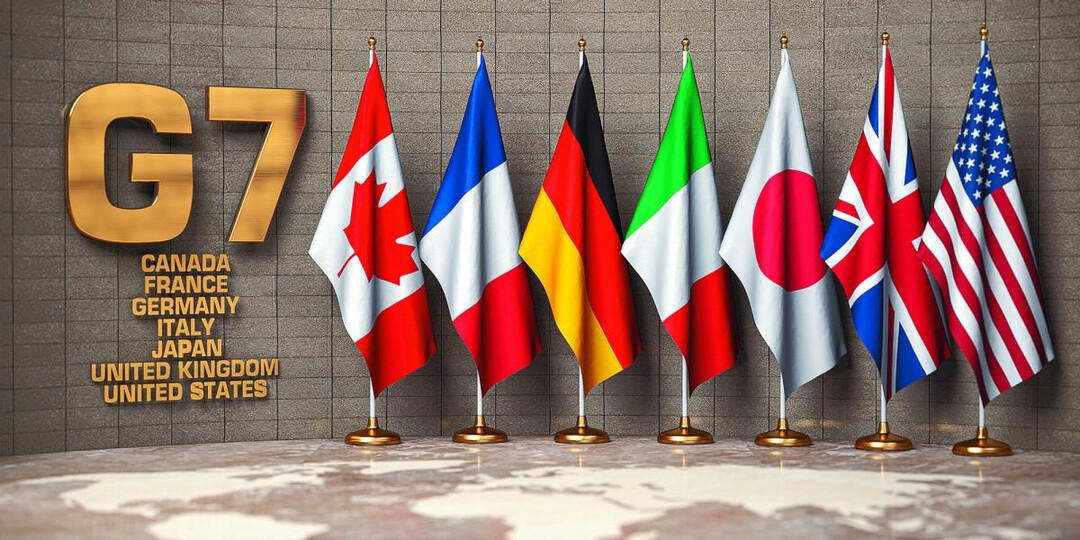
CHARLEVOIX, Quebec – Foreign ministers from the Group of Seven (G7) nations – Germany, Great Britain, Canada, France, Italy, Japan, and the United States – have gathered in Charlevoix, Quebec, for a critical meeting from Wednesday, March 13, to Friday, March 15. This marks their first assembly since U.S. President Donald Trump's return to office in January, and the agenda is packed with pressing global issues, most notably the ongoing conflict in Ukraine and escalating trade disputes.
U.S. Secretary of State Marco Rubio has emphasized that the primary focus of this G7 meeting should be the situation in Ukraine. "The purpose of this meeting is Ukraine," Rubio stated upon his arrival. This declaration comes on the heels of Ukraine's acceptance of a U.S.-proposed 30-day ceasefire with Russia, following extensive talks in Jeddah that lasted over eight hours. "We are now all anxiously awaiting Russia's response," Rubio added.
Russia, which has held the upper hand on the front lines for over a year, has indicated that it is awaiting official notification of the U.S. ceasefire proposal. This development coincides with a renewed effort by both nations to re-establish diplomatic relations, signaling a potential shift in the dynamics of the conflict.
European nations, which have largely remained on the periphery of these negotiations, have welcomed the progress but have also reiterated the need for robust security guarantees to deter any future Russian aggression against Ukraine. German Chancellor Olaf Scholz stressed, "A ceasefire must be part of a peace process that leads to a lasting agreement. Ukraine's sovereignty must be preserved." Italian Foreign Minister Antonio Tajani echoed this sentiment, highlighting the importance of "maintaining transatlantic unity to achieve a just and lasting peace, ensuring Ukraine's independence and sovereignty while safeguarding the security of the European continent."
However, the G7 discussions are likely to be overshadowed by growing trade tensions, particularly between Canada and the United States. Rubio's visit is the first by a high-ranking Trump administration official to Canada since President Trump's controversial remarks about Canada potentially becoming the "51st state" of the U.S. and the imposition of tariffs that have strained bilateral relations.
Upon his arrival in Quebec, Rubio addressed the elephant in the room, acknowledging that trade tensions were a topic of discussion during his meeting with Canadian Foreign Minister Mélanie Joly. "Our obligation is to try to prevent the things we work on together from being negatively impacted by the things we disagree on at this moment," Rubio told reporters. He also sought to downplay concerns about U.S. intentions, stating, "This is not a meeting about how we're going to take over Canada."
Joly, who has recently adopted a more assertive stance in response to Trump's rhetoric, emphasized that Canada's sovereignty is "non-negotiable." She also intends to urge European leaders to take heed of the potential threats posed by the U.S., suggesting that Canada might only be the first target on the new administration's list.
Canada's future Prime Minister, Mark Carney, who is set to succeed Justin Trudeau in the coming days, has gone so far as to describe the U.S. as an "existential danger" to Canada. Joly reinforced this sentiment, stating, "If the United States can do this to us, their closest friend and ally, then no one is safe."
The G7 meeting in Charlevoix is taking place in a highly charged atmosphere, with the dual challenges of navigating the complexities of the Ukraine conflict and addressing the deep-seated trade tensions that threaten to undermine transatlantic unity. The outcomes of these discussions will have far-reaching implications for global security and economic stability.
[Copyright (c) Global Economic Times. All Rights Reserved.]






























